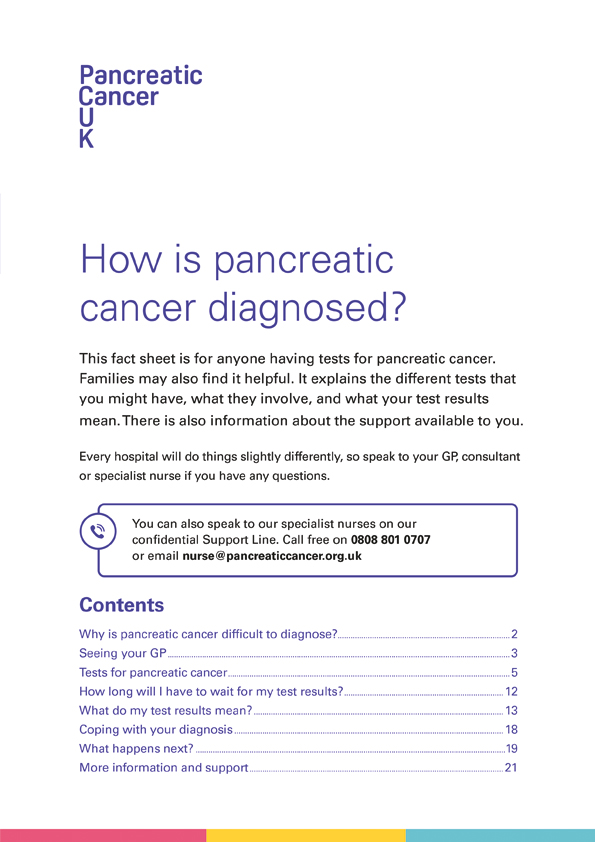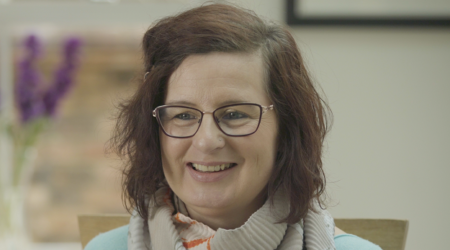Tests for pancreatic cancer
You may need several different tests to work out what’s causing your symptoms. It may take some time to get a diagnosis of pancreatic cancer.
You may have different tests at different times. Your hospital will give you detailed information on the tests you will need and where you will need to go for your appointments.







